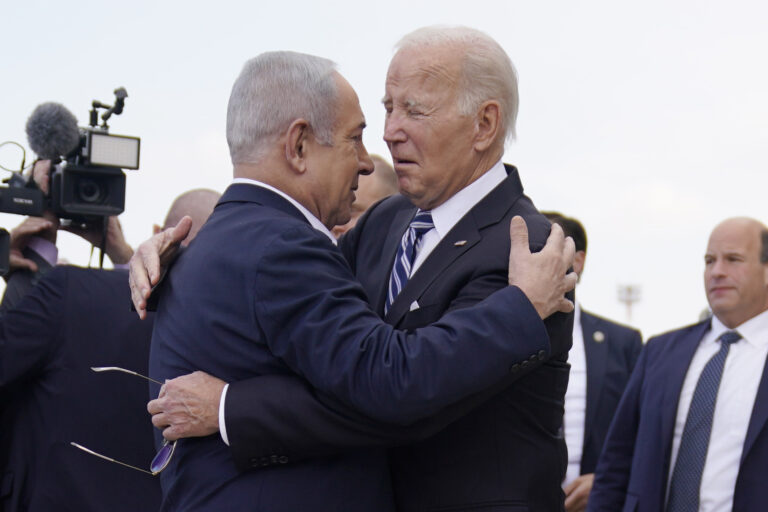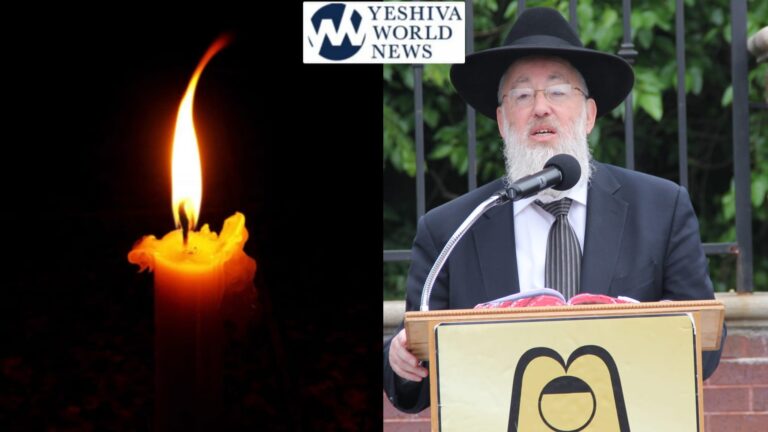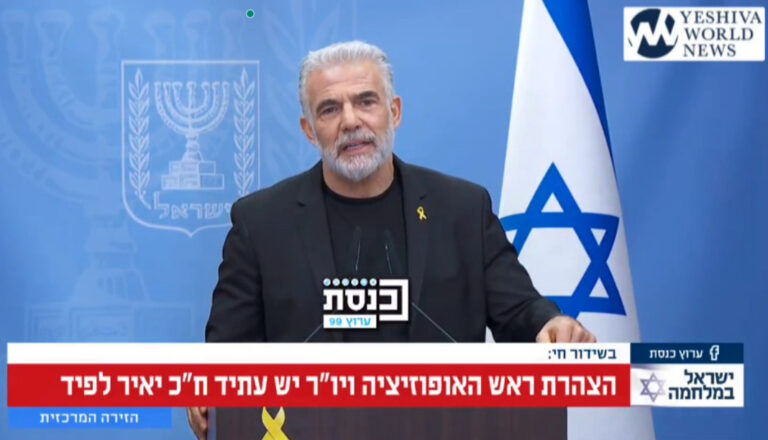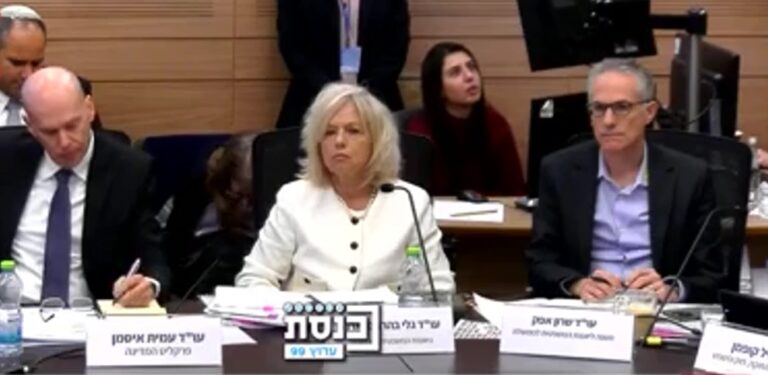by Rabbi Yair Hoffman for 5tjt.com
The Talmud Yerushalmi writes that honoring parents is of the loftiest of Mitzvos. A person is exempt from the observance of other Mitzvos when he is busy taking care of his parents. Indeed, the Aruch haShulchan writes (YD 240:36) that the exemption applies even if he is just waiting to perform the Kivud Av’ V’Aim. We do not find this in regard to any other Mitzvah!
Medical science and research has now given us a new way in which we can perform this very lofty Mitzvah. How so?
Everyone knows that dementia is a very very difficult thing – both for the children and for the parents. If we can eliminate one of the risk factors of dementia, we can accomplish much in the way of Kivud Av v’Aim.
**There is a very special Kallah that needs assistance, if anyone can help.**
https://thechesedfund.com/zechornilah/kallahwithnoresources
How can we do this? There is research that vision issues plays a role in dementia – from 2% to 30%.
Some studies show that nearly 100,000 dementia cases in the U.S. could have been prevented by improving vision, a cross-sectional analysis suggested.
In the Journal of the American Medical Association, Joshua Ehrlich, MD, MPH, of the University of Michigan in Ann Arbor, and co-authors in a JAMA Neurology brief wrote that the population attributable fraction — the proportion of dementia cases that potentially would be prevented if a risk factor was eliminated — of vision impairment was 1.8% in the 2018 Health and Retirement Study.
Dr. Ehrlich also noted that “a very large fraction of vision impairment — possibly in excess of 80% — is avoidable or has simply yet to be addressed.”
“We sought to illustrate that vision impairment is just as influential as a number of other long accepted modifiable dementia risk factors,” he continued. “When we include vision alongside these factors, we’re able to account for an even greater proportion of dementia cases that, in theory, could be prevented.”
Sensory loss is emerging as an important dementia risk factor. A recent prospective study showed that cataract surgery was tied to a nearly 30% lower risk of dementia in older adults. In an autopsy study, hearing impairment was linked with neuropathological hallmarks of dementia.
Categorizing The Mitzvah
The actions, steps and procedures of this fundamental Mitzvah of Kivud Av v’Aim can be categorized into two types – those obligatory in nature, and those that are more of a voluntary or elective nature. They can also be categorized further – issues of Kavod – honor and issues of Moreh, perhaps best translated as dishonoring. Kavod is in the Ten Commandments. Dis-honoring is in Sefer VaYikra in Parshas Kedoshim.
Who and to Whom
Males and females are equally obligated in this Mitzvah. The Gemorah in Krisus (28a) tells us that the obligation extends equally to both the father and mother as well.
Intentions
We are required to perform Mitzvos with the proper intentions. What does this mean? We do it because it is the commandment of the Creator.
What if we do it because it is a good, proper, and ethical thing to do? Good question. It depends. If we conceive of Hashem (as we should conceive Him) as the source and essence of all good – then the intent is valid and proper. If this is not our conception of Hashem – then we have two problems: One – we have an incorrect notion of Hashem; and two – we didn’t properly fulfill the Mitzvah.
Nor should we be nice to our parents to get a proper Yerushah – inheritance – or so that we not be cut off in the will. Both the Ramban and Rabbeinu Bachya specifically warn about these ill intentions. The Malbim even goes a step further. He writes that we should not even fulfill the Mitzvah because of the reward promised in the Torah!
Is the Mitzvah of honoring parents a Mitzvah between man and Hashem or between man and man? The Minchas Chinuch poses this question (Mitzvah #33). The fact that it appears on the right side of the Ten Commandments indicates that it is a Mitzvah between man and Hashem. The Ramban points this out. The Rambam in his commentary to the Mishna (Peah 1:1) indicates that it is between man and man. The Meshech Chochma (beginning of Parshas Kedoshim) writes that it is primarily a Mitzvah between man and man but has elements between man and the Divine in it. What’s the difference? If it is between man and man – Yom Kippur doesn’t atone for it – one must ask forgiveness from one’s parents.
After Death
There is also a Mitzvah to honor one’s parents after they have passed away. Rav Elyashiv ruled that in a place where it is a Minhag to name after the grandparents – this is a fulfillment of this concept.
Within 12 months after a parent’s passing, it is a Mitzvah to say the words, “Hareini kaparas mishkavo (or mishkava)” whenever mentioning one’s parent. After 12 months we say, “zichrono (or zichrona) livracha.”
The recitation of Kaddish is also a fulfillment of Kivud Av v’Aim after they have passed away.
Honoring Parents: Thought, Speech and Action
Thought – The Chayei Adam (67:3) writes that there is an obligation to view their parents as Gedolim and the most honorable in the land – even if they are not viewed as such by others. [See a similar view in Sefer Chassidim #89]. This author once asked Rav Dovid Kviat zatzal how this could be, if it may not be the case. He responded that it, in fact, is the case when we consider the specific personal hurdles and challenges that they overcame. It is the obligation of the child to view his parents achievements in light of the personal hurdles. Thus, for example, a woman who raised her children with Torah values and Mitzvos when facing the daunting assimilation of others that surround her – is truly a Gadol and the most honorable in the land. This is just one example – there are many.
Love – The Zohar (Parshas Ki Saitzay 281) writes that a person is obligated to love his parents more so than his body, soul, spirit, and being. Whatever a person owns should be like nothing when it comes to fulfilling the wishes of his parents. Rashi in Shoftim (6:11) demonstrates that Gideon merited receiving both communication from an angel and leadership solely because he gave of himself to protect his father. Yoseph HaTzaddik merited leadership on account of the perspective that he had when he went to greet his father (Yalkut Shimoni VaYigash 47:157)
Speech – Children must speak softly to their parents, in a calm tone, and using the most honorable terminology and modes of address. (See Kiddushin 30a,b). On the other hand, if one speaks abusively to one’s parents he or she will earn a place in Gehenam, rachmana litzlan.
Action – The Mishna Brurah (301:4) indicates that, if possible, it is a Mitzvah to greet one’s parents every day. There are also numerous actions that are obvious that must be done regularly, for example, taking out the garbage for them regularly – without being asked; offering them drinks or food; requesting if there is anything they need in terms of shopping, mail, etc.
Checking out their vision is part of this last third section of action.
**There is a very special Kallah that needs assistance, if anyone can help.**
https://thechesedfund.com/zechornilah/kallahwithnoresources
The author can be reached at [email protected]












One Response
Repairing vision or hearing improves ones ability to connect with the world, doesnt improve dementia. Its a mitzva to help repair vision and hearing loss for any age person. Many children are considered poor learners when the culprit is hearing and vision loss.
Misdiagnosed dementia can be corrected if it is due to drugs or medications use (even vitamins or “nutritional supplements”). Improper dosage of medications can cause toxicity that mimics dementia. A good doctor should be consulted.